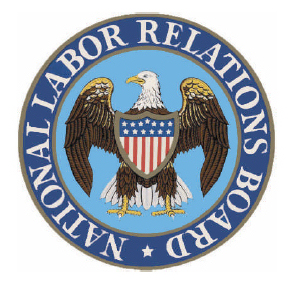By John D. McLachlan
The failure of the Employee Free Choice Act to become law does not mean that unions are giving up, or that their elected and appointed officials are throwing in the towel on their efforts to increase unions’ ever-shrinking share of the American work force. Last week the National Labor Relations Board (NLRB) took a giant step in that direction.
What the NLRB wants
The NLRB is presently composed of four members (normally there are five). Three of the four current members of the Board have, on their own motion, proposed a number of changes to NLRB election procedures which are not helpful to employers but which are very beneficial to unions and their efforts to organize employees.
The Board has published these proposed changes in the Federal Register, and we are now in a 60-day period where members of the public have the ability to submit comments. At the end of the comment period the Board will review the information submitted by the public and may modify its proposals or adopt them as is.
It is our view that there is an very high probability that the changes will be adopted as currently proposed. The exact date that the changes will be adopted is impossible to state with certainty, but we believe there will be no great delay between the close of the public-notice period and the Board’s decision to adopt the proposed changes.
While space does not allow a detailed discussion of all the proposed changes, here is our take on several of them. These are indicative of the direction of all the proposals.
What the new NLRB rules would do
Currently an employer is obligated to provide a union with a list of employee names and addresses within seven days after an election agreement has been signed. Under the proposed changes, you will be required to provide employee names, addresses, telephone numbers, email addresses (if known), and the employee’s work location, shift, and classification all within two days after the signing of an election agreement. This information has to be forwarded to the union via email to ensure that the postal service does not unduly delay delivery.
Another change deals with issues relating to more technical aspects of the election such as objections to the scope of the unit, eligibility of individuals, supervisory status and similar matters. Under the proposed rules, employers will have to complete a questionnaire prior to a hearing, seven days after the filing of the petition. Any issues not raised by the employer at that time would be waived.
 If an employer has access to labor counsel, preparation of these matters might not be such a problem. But small employers are not knowledgeable about issues such as contract bar, voter eligibility, supervisory status, or principles of unit composition. This lack of familiarity along with the new pleading requirements will create serious risks that important issues could be waived which could be determinative in future proceedings.
If an employer has access to labor counsel, preparation of these matters might not be such a problem. But small employers are not knowledgeable about issues such as contract bar, voter eligibility, supervisory status, or principles of unit composition. This lack of familiarity along with the new pleading requirements will create serious risks that important issues could be waived which could be determinative in future proceedings.
Still another change proposed by the Board involves the timing of hearings to determine issues such as supervisory status. An employer is entitled to rely on supervisors to support its position against unionization, and candid communications can properly occur between management and supervisors which would not be permitted between management and employees who are eligible to vote in a secret ballot election. Currently there is a mechanism by which the status of supervisors can be determined before the election is held.
Under the proposed changes supervisory status would not be determined until after the election. Therefore, the employer cannot be positive whether certain individuals are supervisors within the meaning of the National Labor Relations Act or not. Obviously if you guess wrong and have discussions with these individuals as supervisors when they are ultimately found to be eligible voters, you run the very real risk of having the election overturned with the prospect of doing it all over again.
A dissenting voice on the board
Board member Brian Hayes disagreed with this proposed game-changing exercise and his dissent gives a clear indication of the intended purpose of these changes:
Make no mistake, the principal purpose for this radical manipulation of our election process is to minimize, or rather, to effectively eviscerate an employer’s legitimate opportunity to express its views about collective bargaining.”
He also stated,
In truth, the “problem” which my colleagues seek to address through these rule revisions is not that the representation election process generally takes too long. It is that unions are not winning more elections.”
Prepare for the new reality
If Hayes is correct, and we believe he is, it is incumbent on employers to begin now to prepare for the new reality. It’s time to consider how to legitimately express your views about unions and collective bargaining. And time to conduct an internal audit to determine what weaknesses may exist which have the potential to cause employees to consider union representation.
Such an audit would consider matters as diverse as wage and benefits comparisons to comparable businesses in the area and industry, the effectiveness of employee communications tools, management and supervisory success in areas like performance evaluation and discipline, and the use of problem-solving mechanisms. We have addressed these issues in previous editions of our monthly newsletter, The Labor Letter, and will continue to do so.
When the Board adopts these proposals, your ability to communicate with employees about the realities of union representation during a union organizing drive will be significantly curtailed. Our advice? Do it now.
This was originally published on Fisher & Phillips’ Legal Alerts. This Legal Alert is intended to provide an overview of an important new law. It is not intended to be, nor should it be construed as, legal advice for any particular fact situation.
